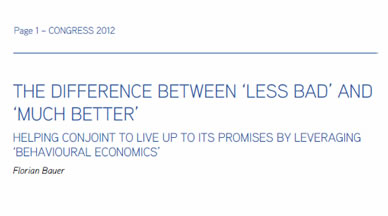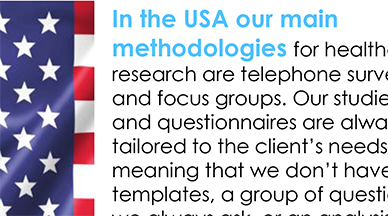IRIS USA
EMC Research

Ian D. Stewart
Principal

-
720 3rd Ave, Suite 1110
Seattle, WA 98104
- Email: ian@emcresearch.com
- Website: http://www.emcresearch.com
- Phone: +01 (206) 204-8032
Ian started as an analyst at EMC in 1999, and has served in many different capacities at EMC on his way to becoming a Principal in the company. His wide range of experience on research projects has included work for private sector clients, public agencies, and campaigns. Ian has found that the learnings from these different projects all contribute to each other; from the simple to the complex, what Ian and his team learns on each project has given him unique insights and skill into giving clients the key answers they need.
One of the things EMC’s clients appreciate most about Ian is his ability to walk them through complex concepts and findings in ways that everyone on the team can understand and use. He says: "What we’re really doing is working with our clients to identify the core of the issues or challenges they want to know about. Our clients often know generally where they want to go, but it’s the specifics that we help them identify and the way we build our questionnaires and analysis from what we’ve learned that sets us apart in this industry. We’re telling a story with research that helps inform everyone at the table to make informed decisions on how to move forward."
COMPANY INFORMATION
EMC Research is a national, full-service opinion research and strategic consulting firm. The company has offices in six locations, San Francisco/Oakland CA, Seattle WA, Portland OR, Washington DC, Orlando FL, and Columbus OH.
CLIENTS PORTFOLIO

Chevron Corporation

GlaxoSmithKline

Mc Kinsey & Company

Microsoft Corporation

Safeway Inc

T Mobile

The Home Depot
PUBLICATIONS

The difference between ‘less bad’ and ‘much better’
Recently, market researchers have become increasingly interested in integrating insights from ‘Behavioural Economics’ into their traditional research approaches. However, this was pretty much restricted to an inductive transfer of selected insights into designs and questionnaires on a case-by-case basis. Moreover, there was no systematic merging of these insights with the classical blockbuster tools of market research, especially with conjoint analysis. This go-to tool for simulating and modeling human choice is commonly criticised for assuming rational choice – something that has been regularly proved to be unrealistic. For the first time, a true solution to this problem has been identified by seamlessly merging conjoint analysis with the most important insights from ‘Behavioral Economics’. This makes predictions more valid while maintaining the core advantages of conjoint analysis.

